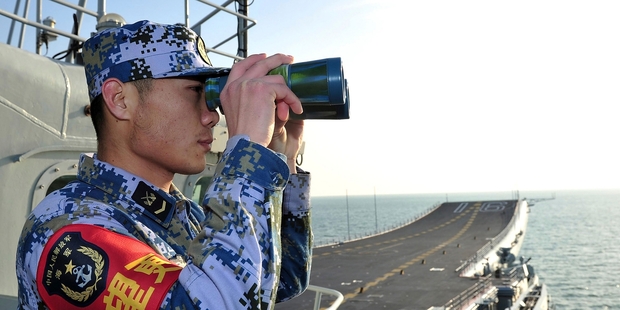New US Trend: If Japan Is a Democracy, Reverse the Henoko Plan
It’s been 18 years since then. In an interview with the Ryukyu Shimpo, former Assistant Secretary of State Campbell, as a U.S. official and think tank researcher who has come to be deeply involved in the Okinawa base problem, stated in reference to the issue of moving Futenma air base to Henoko, Nago City, “We have arrived at the stage where we consider whether to proceed further or to explore a different procedure.”
It’s a remark that bears in mind Governor Hirokazu Nakaima’s Henoko landfill decision and the Nago mayoral election. Campbell is the leading expert who remains a key person in U.S. policy toward Japan, but Japan and the U.S. should take seriously the truth in his suggestion of exploring another option at Okinawa’s discretion.
As the party who constructed the Henoko plan and who has been deeply involved in planning since then, Campbell has until recently been consistently opposed to rethinking relocation. Acting as that leading expert, when faced with the situation in the prefecture, it appears as if he was compelled to say so.
Reduction of defense spending accompanied by Marine Corps reduction, decrease of the United States’ role in emergency situations, advances in military technology and distribution strategy of the Asia-Pacific region have led the U.S. to keep an eye on the rise of China. There is shifting terrain behind the increasing flexibility from U.S. Congress and experts toward re-evaluating relocation, but what they share is likely a level-headed decision in light of the “it can’t be forced it in the midst of local opposition” kind of democratic principle.
On the other hand, Japan’s government threatens local representatives with “Henoko or immobilization of Futenma” and is pressing for repeal of the public pledge to relocate outside the prefecture. I am profoundly depressed at the contrast. While clearly stating that relocation outside the prefecture is possible, the situation that Perry described as “a domestic problem in Japan” has not changed since ‘95. In the inspection of the Futenma problem during this period, it has become clear that Japan has nipped in the bud plans to relocate outside the prefecture or outside the country — plans which would fundamentally resolve the military burden on Okinawa.
Japan’s government should withdraw the Henoko relocation plan and listen sincerely to the United States’ argument, based on the popular will in Okinawa and changes in the strategic environment. If Japan’s government truly wishes for the sustainable development of Japan-U.S. relations, it should return to democratic principles and explore solutions with the U.S. for a return without relocating within the prefecture.
*Editor’s Note: This quotation, accurately translated, could not be verified.


